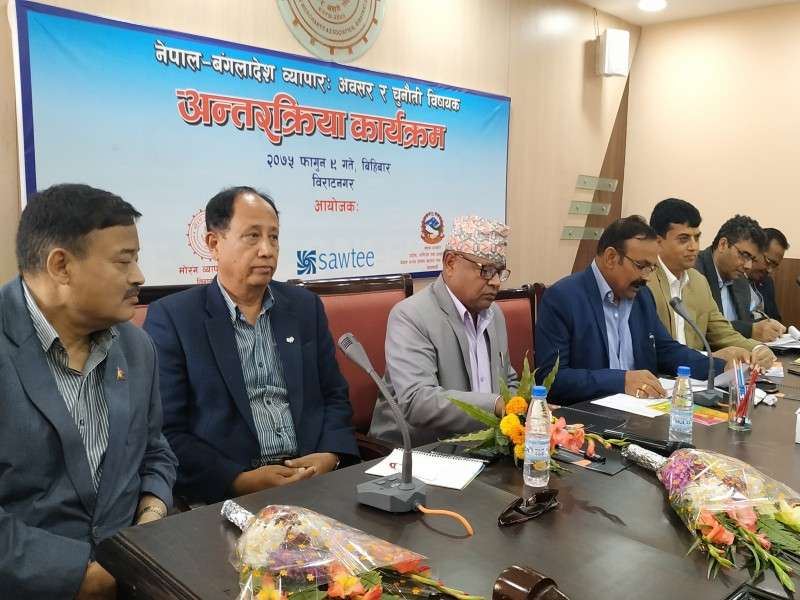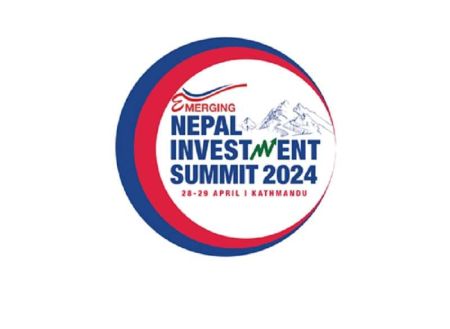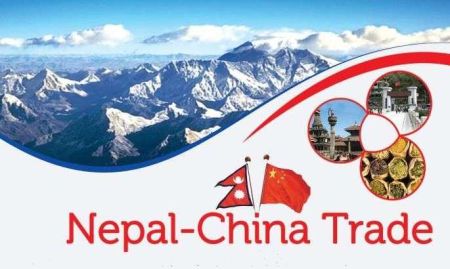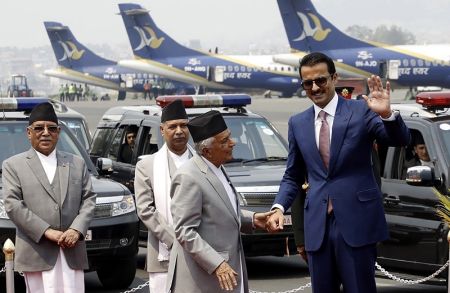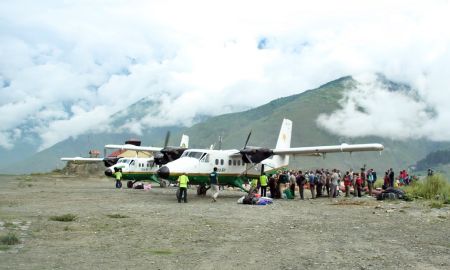February 22: Stakeholders have suggested that Nepal needs to revise its trade and transit-related agreements with Bangladesh to address the growing complexities between the two countries in their trade relations to benefit Nepalese exporters that see potential for their goods in the Bangladeshi market.
Participants of an interaction programme titled "Nepal-Bangladesh Trade: Opportunity and Challenges" jointly organized by the Ministry of Industry, Commerce and Supplies (MoICS); South Asia Watch on Trade, Economics and Environment (SAWTEE) and Morang Merchant Association (MMA) in Biratnagar on Thursday, February 21 were unanimous in expressing such view.
According to a statement issued by SAWTEE, president of Morang Merchant Association, Pawan Kumar Sarda, said that Nepal’s customs duty for Bangladeshi products is less compared to the tariffs imposed by the Bangladeshi government for Nepali products.
In addition, Nepali products face number of non-tariff barriers in Bangladesh due to which our export to Bangladesh is in decline while Bangladesh’s export to Nepal is increasing, he added.
According to Sarda, Nepal is importing goods which are domestically produced such as juice and potatoes, and suggested “we stop importing” such goods from Bangladesh.
Rabi Shankar Sainju, joint secretary at the Ministry of Industry, Commerce and Supplies said that the government is in the process of renewing trade treaty with SAARC countries including Bangladesh. He said that Nepal and Bangladesh have agreed to provide preferential market access to some of their identified products, and Nepal is in the process of identifying such products to be included in the list.
SAWTEE said its chairman Dr Posh Raj Panday made a presentation on Nepal-Bangladesh trade relations and avenues for collaboration. He stated that Nepal’s trade with Bangladesh takes place through Trade and Payment Agreement between Nepal and Bangladesh; Transit Agreement between Nepal and Bangladesh, and also through the regional, sub-regional and multilateral/international agreements signed by the two countries.
“He pointed out that the Most Favoured Nation (MFN) treatment Nepal gets under these agreements is not adequate to address the growing trade deficit with Bangladesh. He suggested to conclude a preferential market access agreement with Bangladesh to address market access issues—including transit, para-tariff and non-tariff barriers—for exportable products and protection of domestic sector/industry,” the statement added.
Participants of the interaction suggested that Province 1 can be the gateway for trade with Bangladesh due to its proximity with the neighbouring country. The participants also stressed the need to improve border customs in both sides and shortening the documentation process while exporting to Bangladesh. They also stressed the need for simplifying the visa obtaining process to go to Bangladesh without having to go to the Bangladeshi embassy in Kathmandu.
According to SAWTEE, about 70 participants from Province 1 participated in the interaction.


